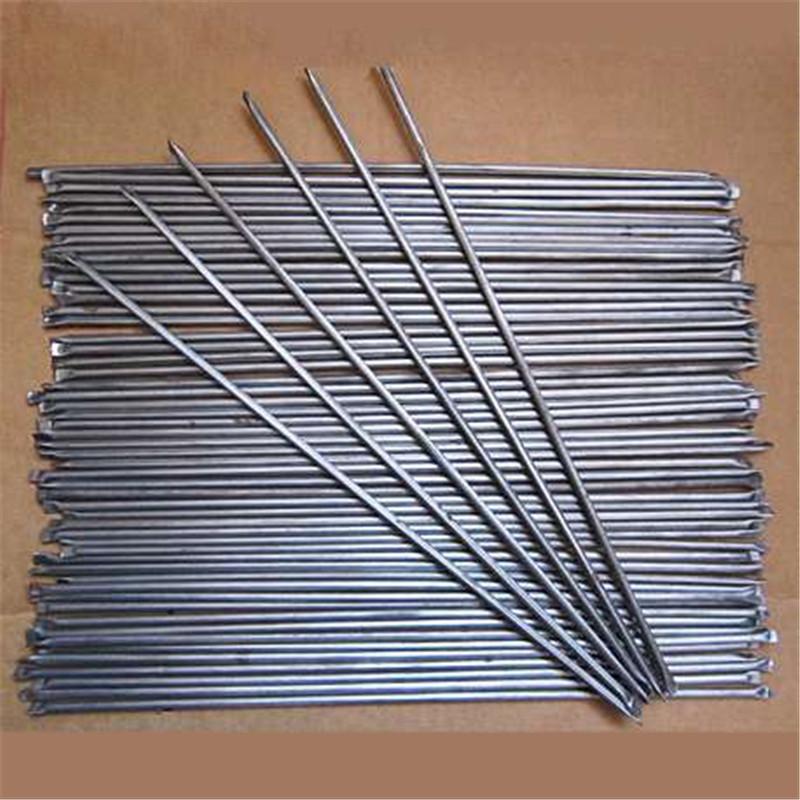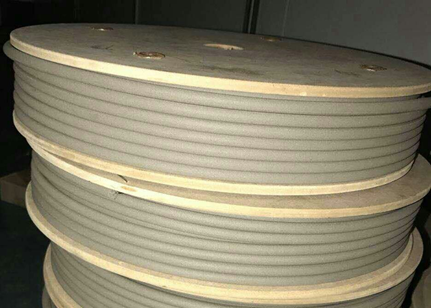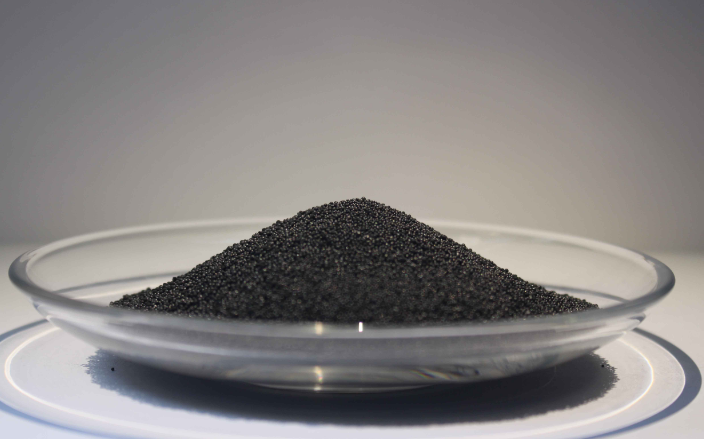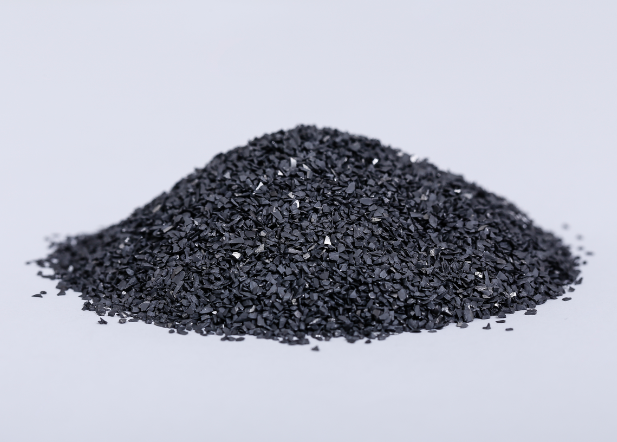Affected by the financial crisis, China's instrumentation industry, like other manufacturing industries, has entered its lowest level since the beginning of reform and opening up in September of last year. "Before 2007, the industry has maintained an annual growth rate of 20% to 30%. However, since the beginning of last year, the number of enterprises' orders has decreased sharply, and production and sales have dropped significantly. The growth rate of the industry at the beginning of this year was only about 2%. This is The lowest growth rate since the reform and opening up,†said Jia Jiacheng while reading the statistics in his hands. The "cold wave" of the financial crisis began to recede from March of this year. The instrumentation industry has also come from the cold winter and gradually entered the recovery period. "According to the latest statistics released by the National Bureau of Statistics, the growth rate of the instrumentation industry reached 6% as of October. In the equipment manufacturing industry, this figure is obviously at a relatively low level." It is expected that the industry growth rate is expected to reach 10%, but from the current situation, it is difficult to achieve this goal.
1.Welding materials
In
Welding, substances called filler materials or consumables are used. As the
name implies, these substances provide filler or a body of molten materials
that provides a strong bond to be formed between the base metals used. Most
welding processes will also require some form of shielding to protect both the
main components and filler from being oxidized during the process.
The
type of welding materials used during welding depends on the nature of the job
intended. Electrodes draw the necessary energy in order to perform welding
applications. Luoyang Golden Egret Company has any kind of welding materials
include CTC Welding Rod /rope, SCTC welding rod/rope, TC electronic welding rod,
Ni-based welding rod, flux-cored Welding Wires, solid welding wires and etc.
Welding
can be applied in different kinds of industries such as building and
construction, oil and gas, marine, power generation, steel, mine tools,
automobile, transportation and etc.
2. Welding rod
1)Cast tungsten carbide based tubular
rod
The
hard phase of the rod is cast tungsten carbide which leads to higher hardness
and better wear-resistance.
Wear
resistance: the wear resistance is 6-7 times better than others. Tested by ASTM
G65
Mainly
used for Mining machinery, Geological tools, Petroleum drilling tools etc, by
Oxy-Acetylene with weak carburizing flame.
Product
recommendation:
GT1103
(CTC, 60-80 mesh),
GT1103-1(CTC, 20-30 um),
GT1103-2(CTC,
40-60 um)
2)The hard phase of tube rod is carbide
pellets which leads to higher impact resistance and better wear resistance than
CTC cloase rod.
Wear
resistance: the wear resistance is 6-7 times better than others. Tested by ASTM
G65 wear test.
Mainly
used for mining machinery. Geological tools etc; by Oxy-acetylene with weak
carburizing flame.
Product recommendation:
GT2102 (Cemented carbide grit, 30-60mesh)
GT2102-2(Cemented carbide grit, 30-40mesh)
GT2102-3(Cemented carbide grit, 40-60mesh)
3)Tube rod is composited by Cemented carbide
pellets, Spherical CTC and CTC. The layer has higher impact resistance, better
wear resistance and good fluidity than other rods.
Wear resistance: the wear resistance is 6-7
times better than others. Tested by ASTM G65.
Mainly used for oil method drill bits, such as
Tri-cone bit, Steel tooth bit, PDC bit, etc. By Oxy-Acetylene with weak
carburizing flame.
Product recommendation:
GT3302 (carbide pellets, 20-40mesh)
GT3302-1(carbide pellets, 14-40um)
4)The hard phase of the rod is monocrystal WC,
the welding layer has a higher wear resistance and better impact resistance.
The wear resistance is 6-7 times better than
others, tested by ASTM G65 method.
Mainly used for the repair and strength for oil
drills bits, such as PDC bit diameter holding by Oxy-Acetylene with weak
carburizing flame.
Product recommendation:
GT4104 (Monocrystal WC, 80-200mesh)
3. Welding Rope
Made
form mixture of CTC and self-fluxing nickel alloy covering on nickel wire. The
CTC is in spherical or irregular with good wear resistance; the nickel alloy is
in spherical or nearly spherical shape with good wettability and erosion
resistance and better corrosion resistance than tubular rod.
Recommend
to use Petroleum drilling tools, Concrete mixing blade, Mud pump, Coal sluice,
Coal drill pipe, Tunnel drilling machinery etc.
By
Oxy-Acetylene Welding with weak carburizing flame.
Product
recommendation:
GS110450N
(CTC, 4mm, HRC 47-55)
GS110550N
(CTC, 5mm, HRC 47-55)
GS110650N
(CTC, 6mm, HRC 47-55)
4. Welding Bar
The
rod is sintered by CTC and Ni-based powders. The CTC(Cast Tungsten Carbide) is
in irregular or spherical shape with better wear resistance and the nickel
alloy is in spherical or nearly spherical shape and has good wettability with cast
tungsten carbide. The cladding layer has a higher impact resistance and better
wear resistance.
Its
wear resistance and corrosion resistance is between tube rod and flexible rope.
Mainly
used on the Steel PDC bit, Concrete mixer blade, Mud pump, Miner chute, Miner
drill stem and Mechanical parts of Tunnel rock drill machine etc.
Welded
by Oxy-Acetylene with weak carburizing flame.
Product
recommendation:
GD4025253-3(CTC, SCTC, 4*600/6*600)
GD4030303-3(CTC,
SCTC, 4*600/6*600)
5. Welding wire
Intensified molybdenum titanium vanadium
composite chromium carbide welding wire can improve layer`s bonding strength
and tenacity. This wire can use for multilayer welding which has no peel off,
and it can maintain good wear resistance under certain impact working condition.
Product recommendation:GSQD671Mo-4(1.6mm)
Medium carbon and high chromium wear resistance welding wire has a higher
hardness, stronger wear resistance, and excellent toughness by adding a certain
amount of molybdenum alloys and boride. It has a better impact resistance and
strip resistance than high chromium cast iron type materials
Product recommendation: GSQD621Mo-4(1.6mm)
With
high sphericity & excellent alloy organization, cemented carbide pellet is
mainly used in welding, as an adding material of PTA Powder , tubular welding
rod, to improve the wear resistance of the workpieces greatly.
Product recommendation: GQ06
Cemented
carbide grit with different percent of cobalt has good abrasive resistance and
is widely used for making grinding, polishing and cutting tools.
Product
recommendation: GS08A
Weld Materials,Tubular Welding Rod,Welding Electrodes,Stainless Steel Welding Rod Luoyang Golden Egret Geotools Co., Ltd , https://www.xtchvof.com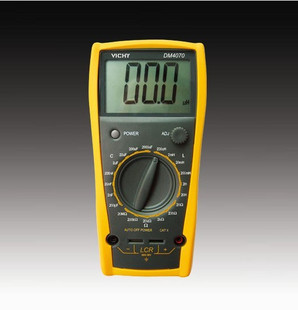
Statistics also show that the growth rate of instrument and meter industry profits is obviously faster than the growth rate of production and sales. At the beginning of this year, the industry’s profits showed a negative growth of 13.7%, which was also unprecedented in more than 30 years of reform and opening up. It can be seen that the financial crisis has hit the industry tremendously. By August of this year, the profit growth rate has risen to 4%.
The growth rate of profits is faster than the increase in production and sales. Yan Jiacheng believes that this is rare in the equipment manufacturing industry. In his opinion, there are two main reasons.
The first is stemming from the more stringent measures of expenditure reduction and income generation that companies generally adopt. The openness of the instrumentation industry is very large. 40% of the profits are created by foreign-funded enterprises. Many foreign-funded enterprises have adopted energy-saving measures commonly used in Western countries. In addition, some companies have also taken measures to reduce expenditures, including salary cuts. At the same time, from the process began to strengthen management, a large number of reduced costs and reduce inventory.
Second, compared with the same period of last year, the cost of raw materials and components decreased, and labor costs also dropped significantly.
It is precisely because of the above two reasons that the instrumentation industry has seen profit growth faster than growth in production and sales.
Three major causes of slow recovery of the industry
Jia Jiacheng stated that the growth rate of 6% means that the recovery of the instrumentation industry is still very slow, which is mainly determined by the characteristics of the industry itself.
One of the reasons: The growth of the industry's development demand is slow. The development of an industry depends on the pull of the industry's three major needs. "Every industry needs development, and it cannot do without rigid demand, development demand and export demand." Jia Jiacheng explained that rigid demand refers to the maintenance of basic production and life; development needs refer to the need to expand the reproduction. The export demand is the product export situation. For the instrumentation industry, the rigid demand accounts for a small proportion of the total demand, because the vast majority of instrumentation has a long service life and does not need to be replaced frequently; the development demand accounts for a large proportion of the entire industry demand, mainly Reflected in the energy, chemical and other industries, the demand for instrumentation and the state, the company's investment in science and technology, quality aspects. If the investment in technology and quality increases, the demand for instrumentation will also increase. Conversely, if the degree of emphasis on technology and quality is reduced, the demand for instrumentation will also be reduced. In the context of the financial crisis, the country’s investment in energy and chemical industries declined significantly. At the same time, due to the economic downturn, companies’ investment in science and technology and quality have also declined. The reduction in investment in these two areas directly led to a drastic reduction in the demand for instrumentation and instrumentation; in terms of exports, the export rate of 30% of products determines that the industry is greatly affected by the fluctuations in the international market and also determines the recovery of the industry. The speed will not be fast.
The second reason is that the measures taken by the country to stimulate the economy are of little benefit to the instrumentation industry. The country’s 4 trillion yuan in investment has brought development opportunities to many industries and companies. However, compared with home appliances, automobiles, and other industries, the instrumentation industry’s financial support is indirect and lagging far behind.
The third reason is that the industry itself is less adaptable to economic adjustment. The product structure that has been formed for a long time determines that the instruments and meters industry must combine with economic structural adjustment in this recovery. Jia Jiacheng, for example, said: “Now the wind power industry in China is developing rapidly, but the control systems of wind turbines are all imported. In addition to wind power, nuclear power and other new energy industries, there are many traditional instruments and meters imported from abroad. Many companies are now working on the issue and are striving to make energy conservation, emission reduction and new energy a new growth point in this round of adjustments."
